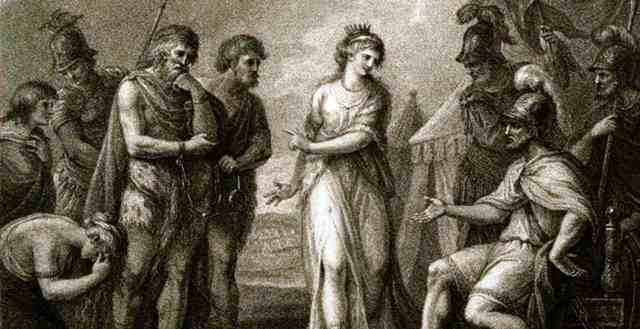After introducing himself, Brian Groom started by defining the geographical limits of his subject; where is the North? Was it above a line from the Severn to the Humber? Or a line from the Mersey to the Wash? If these were not the line, perhaps it was the famous “Red Wall” that the newspapers discovered just before it disappeared in the general election of 2019. A true southerner, of course, believes the North begins at Watford. No! As far as Brian was concerned it was none of these. According to Brian, the North is where people who live there, think they are in the north. A very pragmatic answer, and a very practical one as it avoids the endless arguments of whether Stafford or Wrexham or Nottingham are in the North or not.
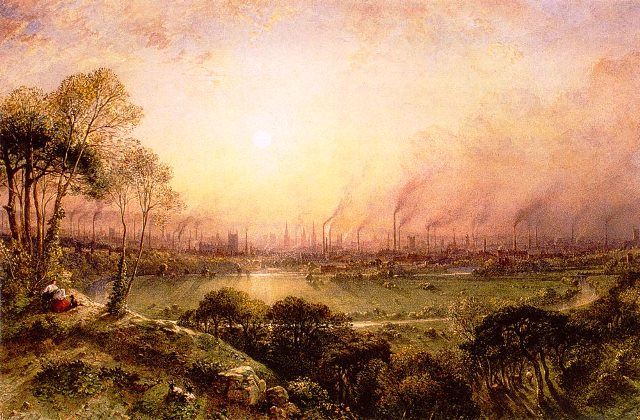
Manchester from Kersal Moor dated 1852- William Wylde
Brian then proceeded apace as he had to cover 175 million years in about 45 minutes. In fact the first living being that could be proven to live in the North, actually, has a name - Alan. This is the name given to a piece of vertebra of a sauropod (long neck, long tail, four sturdy legs) discovered in Whitby in 1995 by Alan Gurr. The first human settlement in the North followed considerably later - a mere 800,000 years ago but they didn’t stay long. The weather put them off. They went back and forth to warmer climes at least seven times as the ice ages came and went, eventually settling here for good, about 10,000 years ago.
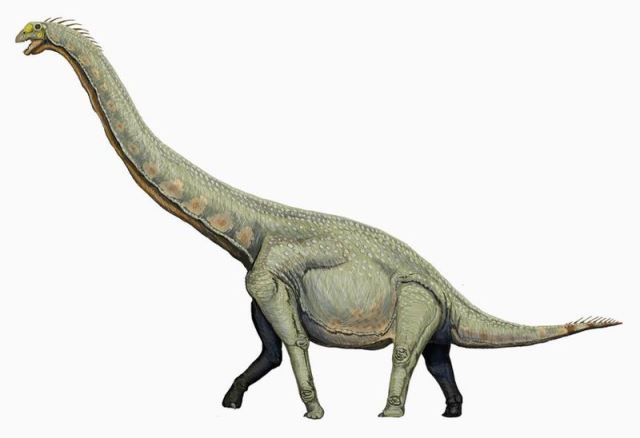
Sauropoddino
We don’t have any names until we get to the Roman period. Seven emperors visited this cloudy isle over the three and a half centuries. Indeed one of them, Constantine, was actually proclaimed emperor in York as his father had died while they were campaigning in northern England. And of course there was Hadrian of Wall fame. But not just Roman names. At the same time we learn of prominent Britons such as Caratacus, Boudica and Cartimandua. Of the three, Cartimandua was the most important. Queen of the Brigantes in her own right at a time when that tribe was dominant across the north of England from what is now Northumberland to present day Stafford.
However, chieftains only held that role in co-operation with the Romans. Cartimandua herself had an eventful life, betraying a fellow tribal chief, divorcing her husband, marrying a common soldier and both fighting rebels and being ousted by them. Tacitus did not have a high regard for her, accusing her of self-indulgence and sexual impropriety so she is not held up as a fine example of northern women.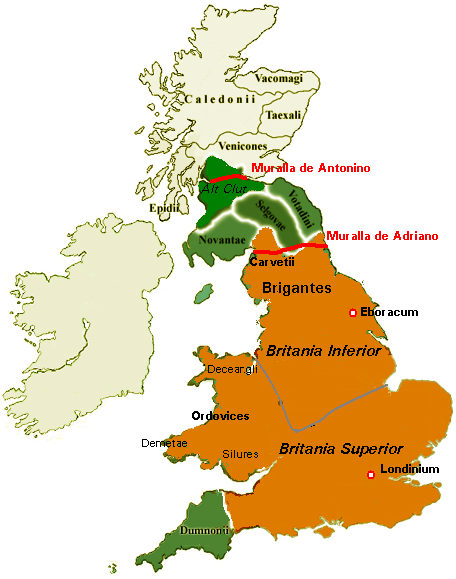
However, what really hurt is that the Romans divided Britannia into two provinces - Britannia Superior and Britannia Inferior. Guess which one was the North? And that was the pattern henceforth. When the Romans left, Northumbria developed into one of the most important Anglo-Saxon kingdoms but, after 200 years, a southern kingdom - Wessex - became supreme and formed the first elements of an English state.
And then came William the Conqueror, or William the Bastard as he was known after the ‘Harrying of the North.’ It seems to have been not so much a harrying as a complete obliteration. In retaliation for a revolt in the northern lands, William marched across the Pennines, laying waste to everywhere he passed through. The record of the Domesday Book twenty years later, showed that the land was worth less than before the conquest. “All Longdendale is waste.”
In the middle ages there were powerful local lords, such as the Percys and the Stanleys but they could never exert as much influence as some of the southern based families such as the Dukes of Norfolk. You can forget about the Wars of the Roses. This was not a battle between Lancashire and Yorkshire. This was a battle between southern based families which owned lands in the north. Then came the Tudors who made a determined effort to centralise control and from that point on London was the centre of power and influence.
The early stages of the Industrial Revolution held out the possibility of a reversal of roles. The water power and the coal were in the north and that was where the industries grew up. The towns in the north grew rapidly and there was a lot of new money, even though it was shared very unequally. However, it was not to be. The first generation of inventors and entrepreneurs made a lot of money and built large and successful businesses. Typically these stayed as family businesses but the second and third generation seldom had the drive and energy of the founder and many of the firms were bought out by larger consortiums, controlled by southern based financiers. Power once again passed out of the hands of the North, an area that had been the engine of growth for almost 150 years.
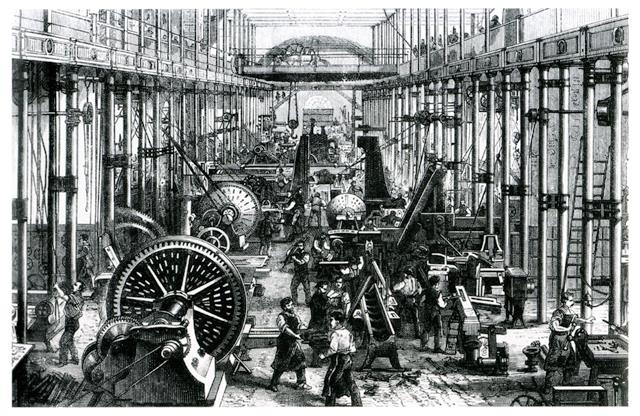
There was, and still is, a large pool of innovation within the North, in many areas of life, not just the economy. Professional spectator sports developed in the region, eventually spreading world-wide. Entertainment ranging from old time music hall to modern groups and solo singers have established international reputations. Despite this the region needs to do more to assert its importance and to make sure that political decisions are not dominated by southern interests. Brian Groom has looked at the role of northern cities with particular emphasis on Manchester. Perhaps he could come back and show us how the political game should be played.
